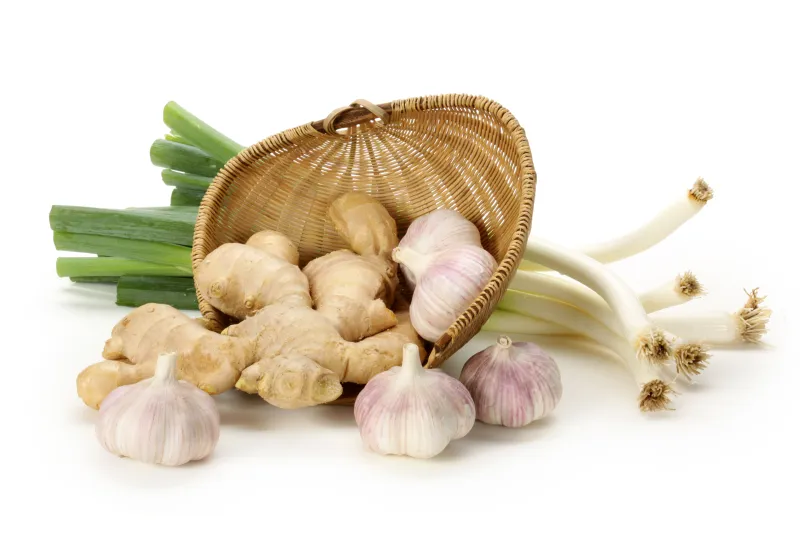Ninety percent of people with high blood pressure are told they have essential hypertension. That’s a fancy way of saying the medical community doesn’t know what’s causing it. But, they still treat it – usually with medications that can have side effects.
This makes some people want to look into natural ways to lower blood pressure. You have about 100,000 miles of blood vessels in your body. And, those blood vessels go everywhere, making sure each of your organs receives the blood and oxygen it needs.
When you have chronically high blood pressure, it affects more than just your vascular system and your heart. High blood pressure can also create problems with your brain, eyesight, and kidneys.
High blood pressure increases your risk of heart attacks and makes you three times more likely to experience a stroke. Plus, high blood pressure is a common risk factor – if you’re over 60, you have a 50% chance of being diagnosed with it.
It is important to understand your body never does anything “just because.” If you have hypertension, there’s a reason, and you’ll want to investigate the root cause before taking medication.
Many times, high blood pressure is actually compensating for another imbalance.

What Causes High Blood Pressure?
Some of the most common reasons for blood pressure elevation include low levels of potassium, magnesium, and vitamin D. Your sodium intake, being overweight, and alcohol consumption are also factors that can raise blood pressure.
But, before exploring some natural remedies for these deficiencies, let’s take a look at standard treatment options for hypertension.
Traditional Treatment Options (And Their Drawbacks)
Many medical doctors tell their patients to watch their sodium intake. And if that doesn’t work, they often prescribe a diuretic, like hydrochlorothiazide. This type of medication eliminates excess fluid.
Unfortunately, it causes you to flush out sodium along with potassium, which is something else many people are low in and need to control healthy blood pressure levels.
And if that doesn’t work, there’s always medication. Common pharmaceutical interventions for high blood pressure include calcium channel blockers, ACE inhibitors, and aspirin.
Calcium Channel Blockers
While calcium channel blockers can be an effective treatment for high blood pressure, did you know if taken continuously for longer than five years, these medications can actually shrink your brain? It might also increase your risk of some cancers.
But here’s the real pressure fact. Studies show this type of blood pressure medication may only lower blood pressure by 0.1.
ACE Inhibitors
Another type of blood pressure medication is ACE inhibitors, and they are known for increasing a patient’s risk of experiencing allergies. There’s also a chance you’ll develop a chronic cough while taking it.
Aspirin
For decades, people took a baby aspirin every day to thin their blood. But recent research, like that published in JAMA, has shown daily aspirin use doesn’t benefit your health.
In fact, another study actually discouraged taking a daily aspirin but went on to say they recommend buffered aspirin (which they didn’t even use in the study.). Instead, researchers used Bufferin which contains magnesium oxide and beta carotene.
Since magnesium is known to lower blood pressure, there’s no way to determine whether it was the aspirin, magnesium, beta carotene, or a combination of all three that helped regulate blood pressure.
Natural Blood Pressure Remedies
If you struggle with blood pressure control and don’t like the side effects (or lack of real effectiveness) that many of the standard pharmaceutical options cause, then natural remedies may be right for you.
Here are a few things to start incorporating into your daily routine to lower blood pressure naturally:
Eat Your Minerals
Potassium, magnesium, and vitamin D are crucial for maintaining a healthy lifestyle and healthy blood pressure. You can find potassium in potassium-rich foods such as sweet potatoes and leafy greens. So load up on salads.
A large salad (or even two.) every day can dramatically impact your blood pressure because of their concentration of potassium and magnesium.
During the winter months (or any time you can’t get 15 to 20 minutes of sunshine a day) consider adding a high-quality vitamin D3 supplement to your routine. And aim to get at least 20,000 IUs each day.
Or try an electrolyte powder. These usually contain the vitamins and minerals you need for optimal blood pressure.

Include Garlic (and Other Healthy Foods)
Garlic makes a great natural ACE inhibitor and also increases nitric oxide. Low nitric oxide has been linked with hypertension, so including garlic in your meals regularly is a great way to naturally regulate your blood pressure.
Add some celery to the mix, and you have the recipe for blood pressure success. Celery has special phytonutrients that support healthy blood pressure. It can also help you get a good night’s rest because of its ability to lower adrenaline levels.
Try having four stalks of celery with your evening meal for the most benefit. Yogurt and tuna are also great options for lowering blood pressure.
Supplement Your Diet
In addition to making sure you’re getting enough nutrients from your food, there are some effective supplements to add to your daily routine to help with blood pressure. To start, boost your body’s natural production of nitric oxide.
Start with a scoop of L-arginine every day. Not only can this amino acid promote healthy blood pressure, but because of its effect on the blood vessels, many men find it improves their erectile dysfunction as well.
To improve the health of your endothelial layer (the inner lining of your arteries), add a quality tocotrienols supplement every day. Tocotrienols are a type of vitamin E shown to have benefits for people who have angina and other heart problems.
Exploring Alternatives to Manage Blood Pressure Naturally
Natural beta-blockers can be a valuable option for those seeking non-pharmaceutical methods to support healthy blood pressure.
These are compounds found in certain foods and herbs that help reduce stress on the heart by lowering heart rate and blood pressure naturally.
Examples include magnesium-rich foods, which relax blood vessels, and compounds like L-theanine in green tea, which promote calmness and reduce heart strain.
Incorporating these natural solutions into your diet, along with proper hydration and regular exercise, can complement a comprehensive approach to managing hypertension effectively.
Conclusion
Natural blood pressure remedies involve lifestyle and diet changes, as well as smart supplementation. You can find ways to manage stress through moderate exercise, deep breathing, and reducing alcohol consumption.
Other methods for lowering blood pressure include quitting smoking and losing weight. Many people can reverse their high blood pressure and live happier, healthier lives because of it.
Supporting Data
https://www.ncbi.nlm.nih.gov/pmc/articles/PMC2343162


















